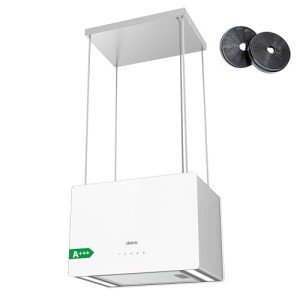20
mayo10 Quick Tips For Island Extractors
Island Extractors: A Comprehensive Guide to a Unique Industry
In the realm of extraction markets, few sectors catch the imagination as strongly as that of island extractors. These specialized entities concentrate on the extraction of important resources, both eco-friendly and non-renewable, from island environments. This post dives into the complex world of island extractors, discussing their operations, ecological impacts, and the future of this niche market.
Understanding Island Extraction
Island extractors are companies or people that participate in the extraction of natural deposits found on islands. This extraction can include a range of materials, such as minerals, fossil fuels, and even marine resources. Given the special environments discovered on islands, the extraction process can provide both opportunities and fundamental difficulties.

Classifications of Island Extraction
Island extraction can generally be classified into a number of classifications:
| Category | Description | Examples |
|---|---|---|
| Mineral Extraction | The removal of minerals from the earth | Kaolin, Bauxite, Iron Ore |
| Nonrenewable Fuel Source Extraction | Extraction of fuels formed from organic matter over centuries | Oil, Natural Gas |
| Marine Resource Extraction | Gathering resources from oceanic environments | Fish, Seaweed, Shellfish |
| Sustainable Resource Extraction | Extraction of sustainable resources | Wood, Freshwater |
The Process of Island Extraction
The extraction procedure itself can vary substantially based upon the resource in concern. The treatments for drawing out oil diametrically differ from those cooker hoods for islands collecting seafood.
Steps in the Extraction Process
- Exploration: This phase involves geological surveys and initial studies to assess the capacity of the resource.
- Regulations Compliance: Compliance with regional and global environmental laws is important to ensure sustainable practices.
- Extraction: This includes drilling for oil or mining for minerals, and can cause considerable interruption to local environments if not handled effectively.
- Transport: Extracted resources generally require transportation back to the mainland or island extractor fan kitchen other markets, typically involving the usage of ships and barges.
- Post-Extraction Restoration: Efforts to bring back the environment post-extraction are necessary to alleviate long-lasting impacts.
Ecological Impact of Island Extraction
Offered the fragile nature of island extractor fan for island hob fan kitchen (click this) communities, the ecological effect of extraction activities can be considerable.
Secret Environmental Concerns
- Environment Destruction: The physical elimination of landscapes can ravage regional plants and animals.
- Contamination: Resource extraction can introduce toxins, resulting in ocean acidification, water contamination, and air quality degradation.
- Coastal Erosion: Activities can worsen coastal disintegration, changing the natural landscape and affecting regional communities.
- Biodiversity Loss: Extractors often interfere with regional ecosystems, positioning native types at threat.
Mitigation Measures
To counteract these effects, island cookers extractors are progressively embracing sustainable practices that include:
- Implementing more stringent environmental regulations
- Utilizing innovation for safer extraction processes
- Conducting thorough ecological impact evaluations (EIA)
- Engaging with local neighborhoods throughout preparation and operation phases
The Future of Island Extraction
As international demand continues to increase for natural deposits, the future of island extractors appears promising yet complicated. Several elements will shape the trajectory of this industry in coming years:
- Technological Advancements: Innovations in extraction technology may cause more effective and less environmentally disruptive techniques.
- Regulative Changes: As environment change ends up being an ever-pressing concern, stricter regulations may redefine extraction practices, focusing on sustainability.
- Pressure from Environmental Groups: Increased advocacy for the defense of biodiversity and environments can affect operational protocols.
- Shift towards Renewable Resources: A growing emphasis on sustainable energy solutions may change the focus from non-renewable extraction to sustainable practices.
Often Asked Questions
What resources are typically extracted from islands?
Common resources extracted from islands consist of minerals, nonrenewable fuel sources, timber, freshwater, and marine resources such as fish and seaweed.
How do island extractors ensure sustainability?
Island Island Extractor Fan Kitchen extractors can make sure sustainability by sticking to environmental regulations, including innovation that lessens effect, and restoring environments post-extraction.
What are the significant challenges faced by island extractors?
Challenges include compliance with guidelines, handling environmental impacts, logistical problems connected to transport, and engaging with regional neighborhoods affected by extraction.
Are there any significant island extraction jobs?
Yes, various projects exist internationally, including mineral mining in the Caribbean, oil drilling in the North Sea, and sustainable fish farming initiatives in Southeast Asia.
The world of island extractors is a complicated interplay in between economic opportunity and ecological obligation. As this industry evolves, the difficulty will be to balance resource extraction with the requirement to protect fragile island environments. By accepting sustainable practices and engaging with regional communities, island extractors can create a course that respects both nature and market, ensuring that these distinct environments are preserved for generations to come.


Reviews